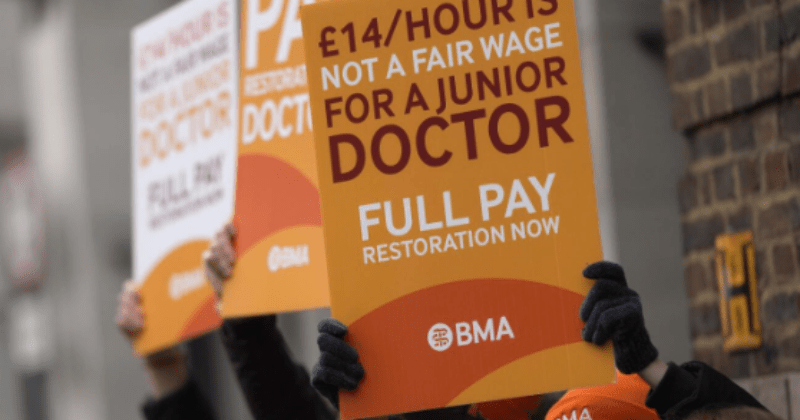After failing to reach a new contract agreement, the strike of more than 75,000 Kaiser Permanente health care employees has begun. This is the largest healthcare strike in US history.
Credit: Reuters
The conflict revolves around what the coalition claims is a significant staffing shortage that endangers Kaiser employees, patients and workers.
Employees include nurses, orderlies, laboratory and radiology technicians, respiratory therapists, and housekeepers. With 13 million clients, the firm is the largest managed care organization in the United States.
Jump to
![]()
- What is the story behind the lawsuits?
- When did the last negotiation take place?
- Nurses are under pressure
- What was the burnout among European healthcare workers?
- When will this strike end?
- What round of strikes has started in the UK?
What is the story behind the lawsuits?
Union workers want Kaiser to improve staffing, which has deteriorated due to the COVID-19 pandemic, and address their concerns about wages and benefits. According to a press release from Kaiser, the strike would also protest unfair labor practices and address the issue of staff shortages.
According to a 2022 report from the Service Employees International Union-United Healthcare Workers West (SEIU-UHW), 83 percent of healthcare workers cited severe or moderate staffing shortages in their departments.
 Credit: Reuters
Credit: Reuters
Additionally, 74% said they needed more time to provide good patient care on a regular basis, and 46% reported frequently or infrequently skipping breaks or meals.
“People are overworked and can’t give patients what they deserve,” a Kaiser Permanente customer service employee told China Media Group.
When did the last negotiation take place?
Kaiser and the alliance last negotiated a contract in 2019, a year before health care workers were forced to work in terrible conditions on the front lines of the COVID-19 pandemic.
Despite public adulation during the epidemic, a more problematic reality existed, including huge patient surges, overwhelming workloads, threats to both healthcare professionals and their families, and an unparalleled level of physical fatigue, according to one SEIU-UHW research.
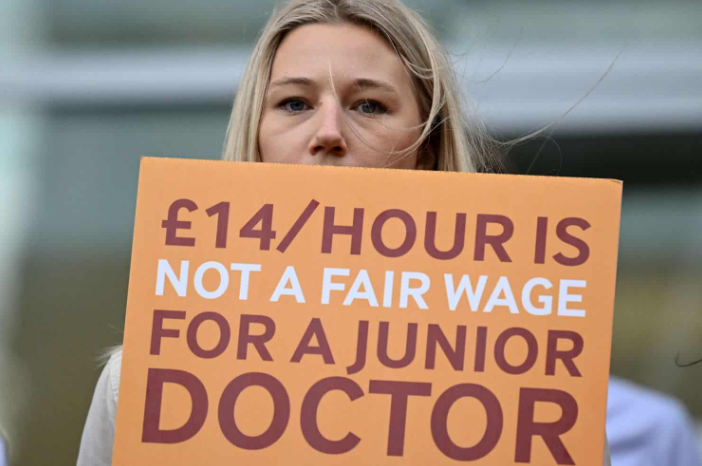 Credit: AFP
Credit: AFP
“Workers are really being stretched right now,” said SEIU-UHW spokesperson Renee Saldana, adding that they’ve had to deal with the worst global health crisis in a generation, as well as rental and housing insecurity. .
Nurses are under pressure
Nurses are also under increasing pressure. A survey of registered nurses conducted in 2023 investigates how COVID-19 has influenced their career choices and job satisfaction.
Thirty percent of the more than 18,000 nurses surveyed said the epidemic would force them to leave their jobs. Only 15% intend to remain in their current positions over the next year, with the remaining 85% seeking other nursing job prospects.
What was the burnout among European healthcare workers?
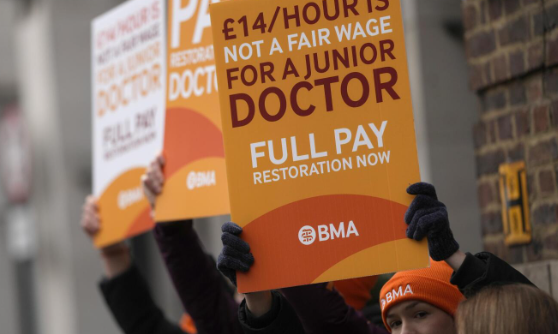 Credit: AP
Credit: AP
Similarly, despite their efforts and the long hours spent away from home during the pandemic, healthcare workers in Europe have faced difficult conditions in terms of pay and working conditions.
In 2022, doctors in numerous European countries, including France, Germany, Spain, Portugal, Greece and Turkey, protested for higher salaries and solutions to hospital staff shortages.
When will this strike end?
The strikes will continue until 2023. Doctors in Germany’s municipal hospitals went on strike in March, demanding compensation for inflation since the last pay increase in autumn 2021, as well as a 2.5 percent pay increase for the hospital’s 55,000 doctors.
What round of strikes has started in the UK?
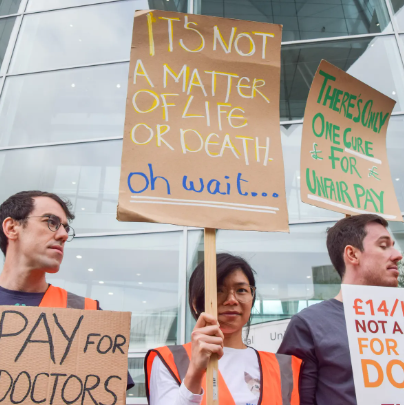 Credit: AP
Credit: AP
In the United Kingdom, junior doctors, who make up 45 percent of all National Health Service (NHS) doctors, began their fifth round of strikes in August.
Thousands of these doctors took part in picketing immediately after starting their initial jobs in the NHS. This comes after a series of nurse strikes in December 2022 and earlier this year.
According to the British Medical Association (BMA), newly qualified doctors earn less than a barista at the Pret-a-Manger coffee chain, and their pay has fallen 26 per cent in real terms since 2008.
For the first time in the 75-year history of the NHS, both consultants and junior doctors went on strike at the same time in September, protesting below-inflation pay proposals and grueling workloads.
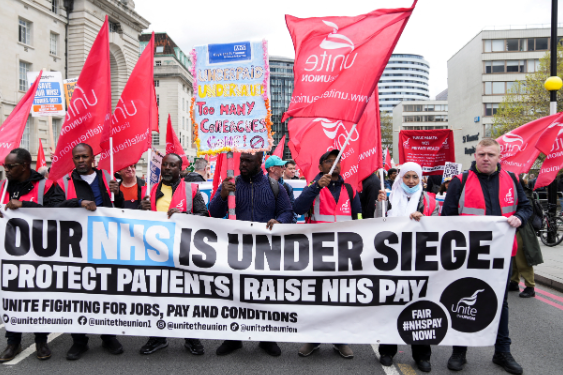 Credit: Reuters
Credit: Reuters
Shane Delamont, a neurology consultant, said he never considered striking and the decision was “made over a number of years”. He told the BMA that persistent pressures on NHS funding, which began with the austerity policies of the David Cameron-led government, had set the stage for the strike.
Despite their heroic efforts during the pandemic, doctors, he added, were increasingly dissatisfied with chronically inadequate support from the government.
what do you think about it? Let us know in the comments.
For more trending stories, follow us on Telegram.
Categories: Trending
Source: vtt.edu.vn
